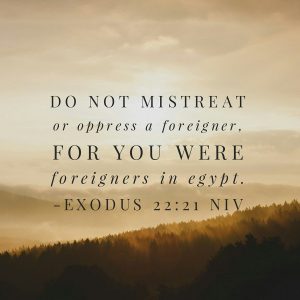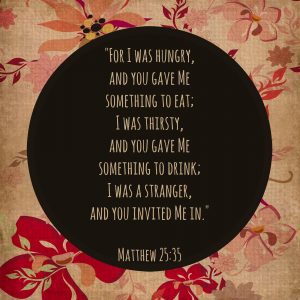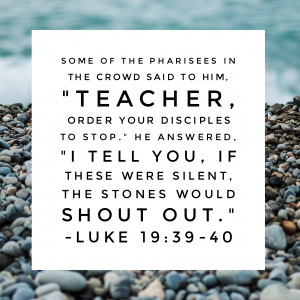It’s funny, I normally write my blog posts more than a week in advance, but because of Bishop’s Convocation last week I am a bit behind, which meant that I would be writing my post for today, actually on the day.
And in some ways I’m grateful for that. Because had I written this last week, I think my post would be very different.
It would be different, because the events of this last weekend have made a huge impact on where the Holy Spirit is leading me today. Rather than a post focused on this week’s Scripture texts or another installation of “Pastor Explains”, I find the Holy Spirit is poking at me to join so many other people of faith in sharing how my faith impacts my understanding of how we care for our neighbor.
Our faith is part of our lives, it shapes the way in which we see the world, ourselves, and those around us, but sometimes we prefer to stay silent. In our current political climate, we are afraid to offend others, we don’t want to appear biased or judgmental. And honestly, sometimes we just want to stay out of the controversy.
But there is nothing partisan or biased about the truth of the Gospel, the words from Scripture, from the Hebrew texts and from Jesus himself reminding us that we are called to care for our neighbor, to not mistreat or oppress the foreigner, to welcome the stranger into our homes, to share hospitality and mercy.
In the wake of last week’s executive order regarding immigration and refugees, I am grateful that the faith leaders I look to have not stood silent, they have not stayed out of the controversy, instead they point to the Gospel, to Jesus, and they speak truth.
In many ways, the words of ELCA Presiding Bishop Elizabeth Eaton, SW Washington Synod Bishop Richard Jaech, and the words of thousands of religious leaders have already spoken into the truths our Gospel shares with us. The truth that our faith in Jesus is a faith that calls us outside of ourselves – outside of our fears and anxieties – and calls us to the neighbor.
These leaders of our denomination and so many others have made it clear – that our sacred texts, our Scripture, teaches us that our neighbor is not just the person who lives next door to us, who looks like us, or who sounds like us, but that our neighbor is anyone in need of mercy.
And there is so much mercy needed in this world. Since the Hebrew people were foreigners in the land of Egypt, our sacred texts have reminded us of the need for this mercy, particularly for those who are strangers to our nations, because we ourselves, whether through the real history of our immigrant ancestors or the shared history of the people of Israel, were once foreigners. Scripture reminds us how we are to treat the stranger, the foreigner, the person we might deem as “other”.
Because the truth is, Jesus has called us into something more than just being people who attend church and care for ourselves, but Jesus assures us that when we care for our neighbor – when we feed the hungry and welcome the stranger, when we care for anyone in need – we are caring for Jesus.
And what a gift that is, that in caring for others we can return some of the incredible love and mercy we have received to the one who gave it to us, that part of the gift we receive is a gift we are called to share.
But as I said at the beginning of this post, so many other leaders have already perfectly identified the truth of the Gospel in this situation. I invite you to read the links above, I invite you to share your own voice, to speak up and to speak out, to find ways to share the Gospel with our neighbors, our leaders, and our communities. We are called to share God’s love and mercy, to care for the foreigner and the stranger, and we are called to speak the truth of the Gospel. Because even if we are silent, the stones themselves will shout out.


